Banking on Grass Roots in Iowa
In these final days before the Iowa caucuses, John Edwards' chance for the presidency comes down to people like Jim Clifford, trudging up an icy driveway to persuade Leo Oswald, a shipping clerk at the Georgia Pacific plant in Dubuque, to turn out and support Edwards.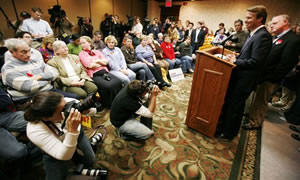
DUBUQUE, Iowa — In these final days before the Iowa caucuses, John Edwards’ chance for the presidency comes down to people like Jim Clifford, trudging up an icy driveway to persuade Leo Oswald, a shipping clerk at the Georgia Pacific plant here, to turn out and support Edwards.
Clifford is among the many volunteers for the various presidential candidates who visit homes and make phone calls to get supporters to the caucuses. They are the unknown warriors of the campaign, but their work will make the difference between victory and defeat in Iowa. Edwards is tied with Barack Obama and Hillary Clinton in the polls.
I trudged alongside Clifford, a union member from California. Oswald was shoveling ice and snow from his driveway. He, like Clifford, was a strong Edwards and union man. But he explained that he will miss the caucus. Oswald works the 11 p.m. to 7 a.m. shift and he’ll be napping and getting ready for the job when caucuses are held at night. “Just won’t have time,” he said. As a matter of fact, he said, probably just 10 percent of the 125 union members at Georgia Pacific will attend the caucuses.
That is in line with a Des Moines Register poll estimate of 12 percent Republican and 10 percent Democrat attendance at caucuses around the state. That is a tiny percentage of the 57,204 people living in Dubuque and the 2,944,062 residing in Iowa. Such a low level of involvement makes me wonder about news accounts that portray this as the battle of the century.
(At this point, I must digress. The caucuses are a travesty of the American political system. They are so undemocratic, unfair, unrepresentative and overly complicated that they deserve an entire column, which I will do soon. For this piece, all you have to know is that small groups of Democrats and Republicans get together in caucus meetings and select convention delegates pledged to various candidates.)
On television, the campaign appears to be as well plotted as an episode of “The West Wing.” In real life, it’s disorganized and random. When I return confused to my hotel room in Des Moines, I have to turn on CNN to get a sense of order, even if it’s a false one. Correspondents, aided by producers and other support personnel in the CNN campaign bus and at headquarters, summarize the candidate’s activities. Frequent recitation of polls, buttressed by interviews with voters and an occasional academic, give the reports an appearance of accuracy.
I encountered a much more uncertain story when I hooked up with Clifford and his co-worker, Donna Norton, a nurse at the Kaiser hospital in Vacaville, Calif. Norton is also a United Health Care Workers West leader and a mental health counselor at Kaiser in San Diego. I thought they were admirable — true believers who left family and friends in California during the Christmas season to work for a presidential candidate.
We met in a coffee and sandwich shop in the nicely restored downtown section of Dubuque, a blue-collar city in northeast Iowa on the Mississippi River. It took more than three hours to get there, a trip slowed by fog.
Using lists given them by the Edwards campaign and the union, Clifford and Norton work 12 hours a day making phone calls to potential Edwards supporters and visiting them at home.
With Clifford at the wheel and Norton checking lists and me in the back seat, we drove through neighborhoods covered by snow. The homes were attractive, ample and unassuming. The people, said Norton, are Democratic, “very Catholic and very pro-life.” If the pro-choice Edwards opposed abortion, she said, he would run away with the votes here.
They stopped whenever they came upon a house occupied by a prospect. Night shift worker Leo Oswald was our first call. Undeterred by Oswald’s inability to attend a caucus, Clifford cheerfully engaged him in conversation. He got Oswald to talk about his workplace, and it turned out to be a story of multinationals, the villains in some of Edwards’ speeches. One corporate owner after another, each one bigger than the last, putting the Dubuque plant further down the corporate ladder. “So it goes,” said survivor Oswald.
There was a purpose behind Clifford’s conversation. Even if Oswald could not attend the caucus, Clifford’s friendly manner might persuade him to urge a co-worker or relative to go.
Clifford and Norton visited three other houses on their list of prospects, but nobody was home. They left campaign literature on the doorsteps.
Their day had the haphazard quality of the city council and legislative campaigns I used to cover. But the Edwards national campaign apparatus, like all the others, is trying to give outsiders like me the impression of order.
That was clear when Clifford, Norton and I visited the Edwards headquarters in Dubuque. Four young men were punching computers and making phone calls. I sat down and asked them questions. Nothing tough, just their names, what they were doing and what was Dubuque like.
One of them said I would have to call the press person at state headquarters. They were not authorized to talk to the media. I assured them that I could figure out what they were doing just by watching. I did. It was boring. My experience has been that low-level campaign workers enjoy talking to reporters. But these four were under unusually strict control.
Obviously, more important than the doggedness of campaign workers are the candidates’ own appearances on television and in person in winning the hearts of the activists who will attend the caucuses. The other night, I heard Sen. Chris Dodd, an underdog, speak to a union crowd at a Des Moines tavern, the Star Bar. His wife, Jackie, came along, carrying one of their daughters.
Dodd, from Connecticut and a pol familiar with campaigning in union halls and bars, knew how to talk to the crowd. “I think we can surprise the world,” he said. He added that “I want a ticket out of Iowa,” a nicely put way of describing how a surprising showing here would propel him into later races. “I am going to win the Democratic nomination.”
Afterward, Dodd moved through the crowd of men and women, a senator used to being in charge. But he doesn’t know what these people will do Jan. 3. It is out of his control. None but the most naive would be deceived by polls and analysis. Control is in the hands of the volunteers making phone calls and trudging up driveways.
Your support matters…Independent journalism is under threat and overshadowed by heavily funded mainstream media.
You can help level the playing field. Become a member.
Your tax-deductible contribution keeps us digging beneath the headlines to give you thought-provoking, investigative reporting and analysis that unearths what's really happening- without compromise.
Give today to support our courageous, independent journalists.
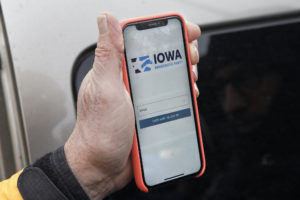

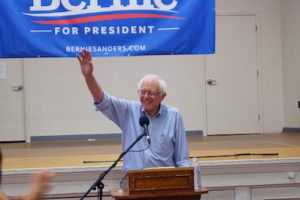
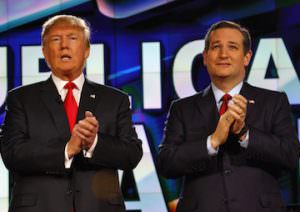
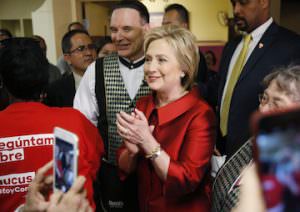
You need to be a supporter to comment.
There are currently no responses to this article.
Be the first to respond.